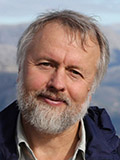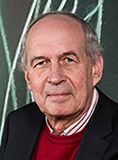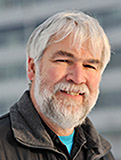Title
Data as Economic Goods: Definitions, Properties, Challenges, Enabling Technologies for Future Data Markets
Abstract
The notion that data has value is commonly recognized. However, data value is different from that associated with consumable goods. There is a number of initiatives to create data markets and data exchange services. Existing business models of paid or commercial data (sets) services such as data archives are based on service subscription fees. However, emerging data-driven technologies and economies facilitate interest in making data a new economic value (data commoditization) and consequently identification of the new properties of data as economic goods. The following properties are leveraging FAIR data properties and defined as STREAM properties for industrial and commoditized data: sovereign, trusted, reusable, exchangeable, actionable, and measurable. Other properties to be considered and necessary for defining workable business and operational models are non-rival nature of data, data ownership, data quality, value, privacy, integrity, and provenance. The paper refers to other discussions and projects on defining data as consumable goods and market mechanisms that can be applied to data exchange, such as data markets, data exchange, and industrial data space.
Keywords
Big data, big data infrastructure, data exchange, FAIR principles, data management, data markets, open data, STREAM data properties
Authors
 Yuri Demchenko Yuri Demchenko
(University of Amsterdam, Netherlands)
Dr. Yuri Demchenko is a Senior Researcher at the System and Network Engineering laboratory of the University of Amsterdam. He is graduated from the National Technical University of Ukraine "Kiev Polytechnic Institute" where he also received his PhD (Cand. of Science) degree. His main research areas include Data Science and industry digitalisation, Big Data and Data Intensive Technologies and Infrastructure, Cloud and Intercloud architecture, general security architectures and distributed access control infrastructure for cloud based services and data centric applications. Yuri is involved in a number of research and innovation European projects such as GEANT4, MATES, EOSC where he conducts research and developments of the cloud based Big Data infrastructure, infrastructure management, data management, and industry digitalisation. He coordinated the EU funded EDISON project that developed the EDISON Data Science Framework (EDSF) that provides a conceptual foundation and practical basis for building the Data Science profession for research and industry and currently widely used by many universities, companies and projects in Europe and worldwide, it is also cited in a number of industry and higher-education studies. Yuri is actively contributing to the standardisation activity on defining Big Data Architecture Framework, Intercloud architecture for complex infrastructure services provisioning in clouds, Data Science and digital competences and skills definition.
 Wouter Los Wouter Los
(University of Amsterdam, Netherlands)
Prof.dr.ir. Cees de Laat chairs the System and Network Engineering (SNE) laboratory at the Faculty of Science of the University of Amsterdam. The SNE lab conducts research on leading-edge computer systems of all scales, ranging from global-scale systems and networks to embedded devices. Across these multiple technology domains, the SNE’s particular interest is on extra-functional properties of systems, such as performance, programmability, productivity, security, trust, sustainability and, last but not least, the societal impact of emerging systems-related technologies. Cyber Infrastructure is rapidly evolving from relatively simple fixed components to programmable and virtualized objects with many degrees of freedom, owned and operated by different entities in multiple administrative connected domains on the Internet. Harnessing this complexity in a transparent trust-able way for safe and secure data exchange and processing is a major research topic that nowadays defines the focus of Prof. de Laat’s research. For range of ongoing activities and projects see:
http://delaat.net/.
 Cees de Laat Cees de Laat
(University of Amsterdam, Netherlands)
Dr. Wouter Los originally educated in theoretical chemistry and physics, entered biology and held various research and management positions. While serving as director of the zoological collections infrastructure at the University of Amsterdam, he became increasingly interested in e-BioScience. This resulted in various initiatives on biodiversity data informatics. Amongst others he was chair of the Science Committee of the Global Biodiversity Information Facility, and designed and managed the development of the (ESFRI) LifeWatch infrastructure for biodiversity and ecosystem research. He was member of the EC High Level Group that produced the report “Riding the Wave” (2010) about data challenges in European research. He coordinated several projects on interoperability of European and global environmental research infrastructures. Wouter is one of the leading consultants for the Amsterdam Data Exchange initiative and project. |